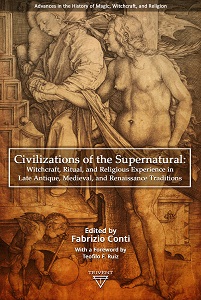Aelian on Tortoise Sex and the Artifice of “Erotic Love Magic”
Aelian on Tortoise Sex and the Artifice of “Erotic Love Magic”
Author(s): Naomi Janowitz
Subject(s): History, Ancient World, Theology and Religion
Published by: Trivent Publishing
Keywords: love magic; Ancient Greek; rites of sexuality; literary anecdotes
Summary/Abstract: For the Roman author Claudius Aelianus (Aelian, ca. 175–235 CE), intercourse is not a simple issue for animals. In his book On Animals, Aelian introduces the tortoise as follows: “Tortoises are the most lustful land animals but the males only, the females do not willingly mate.” Luckily, nature offers a solution to this dilemma. Male tortoises, Aelian states, use a plant to stimulate an appetite for sex in reluctant female tortoises. Christopher Faraone, in a sophisticated analysis of the anecdote, considers it evidence of “love magic.” He connects the anecdote with much earlier Greek rites via their standard classification in this category. Ancient Greek love magic includes agape-inducing formulas/rites used by men to turn women into passionate lovers and philia-inducing formulas/rites used by women to attract men. The category “love magic” is widely used to evaluate and classify rites, adopted recently by Radcliffe Edmonds. Evidence includes the use of lead tablets with cursing formula (fourth century B.C.E.), rites related to intercourse or sexuality found in the Greek papyri (first-fourth centuries C.E.), and numerous Greek and Roman literary anecdotes about goddesses or women who poison or attempt to poison men for marital or love interests.
- Page Range: 13-30
- Page Count: 18
- Publication Year: 2020
- Language: English
- Content File-PDF

